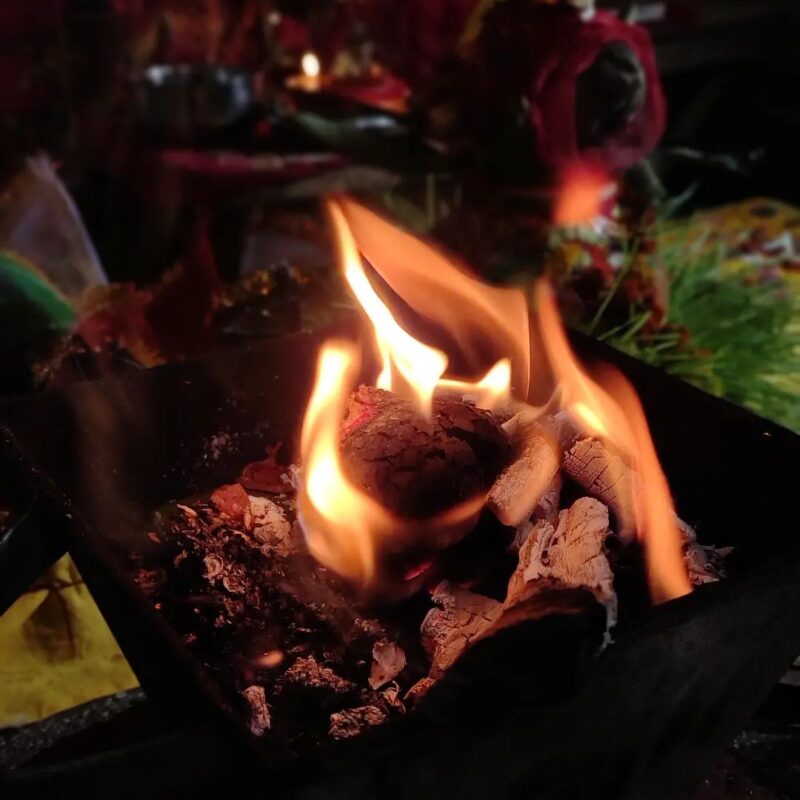Havan, also known as Homam or Yajna, is a sacred fire ritual deeply rooted in Sanatan Dharma (Hinduism). It is a spiritual practice in which offerings are made to the fire while chanting mantras to invoke divine energies and seek purification and blessings. The significance of Havan spans spiritual, cultural, and scientific dimensions, making it a practice revered in Hindu traditions. This article explores the types of Havan, their benefits, and the scientific reasons behind these rituals.
Vedic Rules of Havan Ritual

A qualified Guru (Siddhaguru) is essential for the successful performance of the Havan ritual. The Guru imparts spiritual knowledge, initiates disciples into specific mantras and practices, and provides constant guidance and support on the spiritual path. The presence of a Guru ensures that the Havan is performed correctly and with the appropriate spiritual focus.
Who Is The God Of Havan?
According to Hindu scriptures, Lord Shiva is the ultimate recipient of all offerings made into the sacred fire during Havan.
अहम हि सर्वयज्ञं भोक्ताचैव फलप्रदाह
As stated by Lord Shiva to Sage Vasishtha: “Aham Hi Sarvayagya Bhoktachaiyava Phalpradah,” meaning, “I am the recipient of all the oblations offered into the sacred fire during the Havan ritual.”
Therefore, performing Havan dedicated to Lord Shiva is a common practice, as he is revered as the giver of ultimate liberation and salvation. In the Havan ritual, Lord Rudra (a form of Shiva) is revered as Yajneshwar, Vishnu as Yajna, and Indra as the Havan performer. Various mantras dedicated to Lord Shiva are chanted with deep devotion, following the traditions laid down in Vedic and Tantric rituals.
Types of Havan
Mostly there are 2 types of Havans that are offered by devotees:
1. Vedic Hawan – Meaning, Importance And Benefits

Meaning and Importance:
Vedic Havan refers to the performance of Havan rituals according to the principles laid down in the Vedas, the ancient sacred texts of Hinduism. This type of Havan involves reciting Vedic mantras and invoking deities associated with specific qualities and powers to bring blessings and auspiciousness.
Benefits:
- Spiritual Growth: Vedic Havan promotes spiritual growth by connecting devotees with the divine and invoking blessings for well-being and prosperity.
- Purification: The ritual purifies the mind, body, and environment by invoking positive energies and dispelling negativity.
- Harmony: It establishes harmony among the Panchabhutas (five elements: earth, water, fire, air, and ether).
Scientific Reasons:
- Air Purification: The ingredients used in Vedic Havan, such as ghee, herbs, and wood, release medicinal properties when burned, purifying the air and killing harmful bacteria.
- Psychological Benefits: The rhythmic chanting of mantras has a calming effect on the mind, reducing stress and promoting mental clarity.
2. Tantric Hawan – Meaning, Importance and Benefits
Meaning and Importance:
Tantric Havan involves performing rituals within the framework of Tantra science, which emphasizes the interconnection with the universe by accessing the divinity within. Tantric practices aim to harness and channel spiritual energy for spiritual and material growth.
Benefits:
- Spiritual Empowerment: Tantric Havan enhances spiritual growth by invoking powerful divine energies and establishing a sacred space.
- Healing: The practice aids in healing physical, mental, and emotional ailments by transforming divine consciousness.
- Awareness: It increases awareness and deepens the connection with divine consciousness.
Scientific Reasons:
- Energy Transformation: The specific mantras (bijakshar mantras) recited during Tantric Havan are believed to have powerful vibrational frequencies that positively influence the practitioner’s energy field.
- Meditative Benefits: The ritual often involves meditation, which deepens the connection with the divine and enhances spiritual experiences.
Both Vedic and Tantric Havan require sincerity, reverence, and a willingness to surrender to the divine powers. These rituals embody timeless wisdom and spirituality, reflecting the profound impact they have on an individual’s spiritual journey. Consistent practice of Havan rituals can lead to higher levels of consciousness, increased awareness, and a deeper connection with the divine.
Havan, with its rich history and spiritual significance, continues to be a vital practice in Hinduism. Its benefits extend beyond spiritual growth, encompassing physical, mental, and environmental well-being. By understanding the types of Havan and their respective benefits, practitioners can harness the power of this ancient ritual to enhance their spiritual journey and overall well-being.







